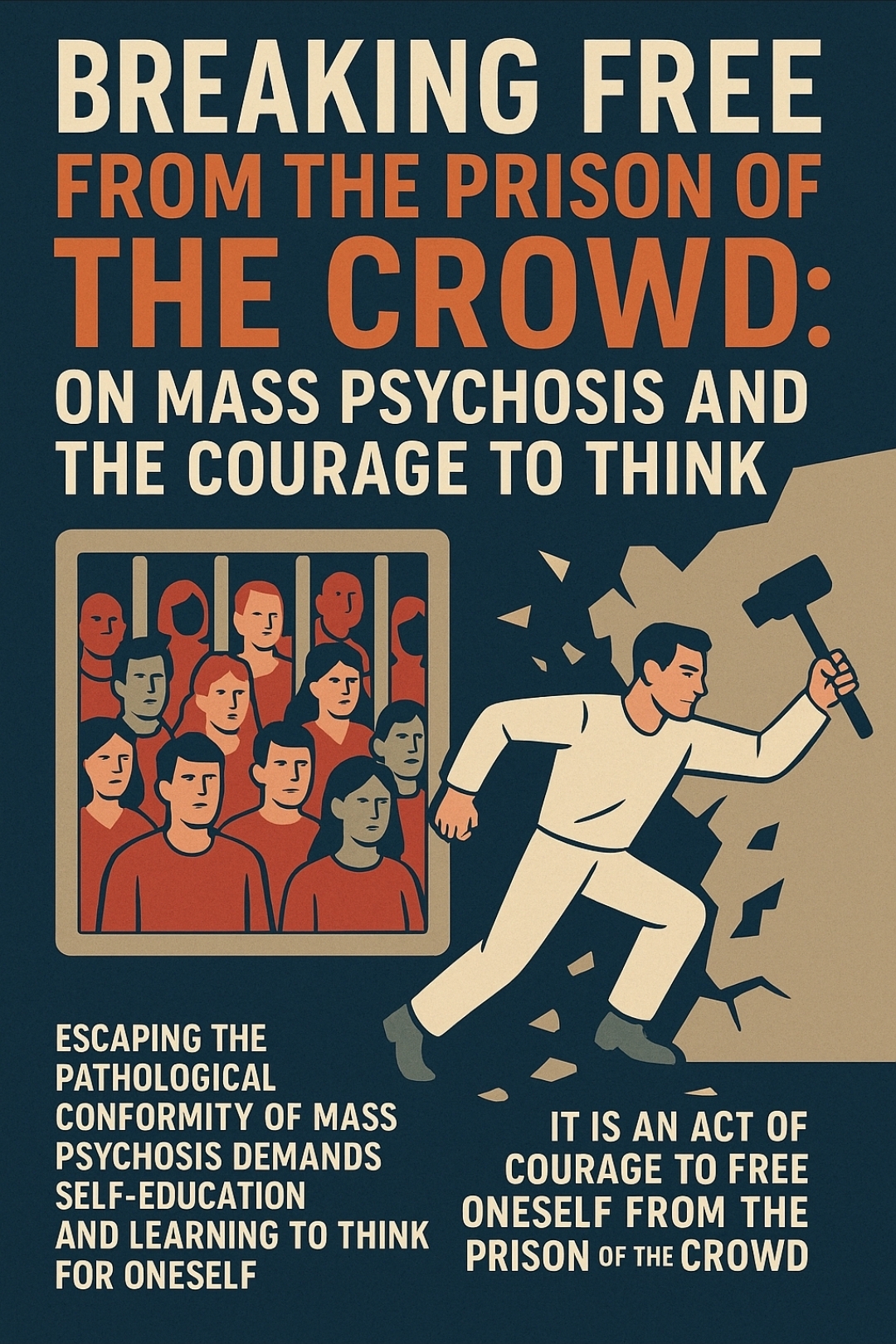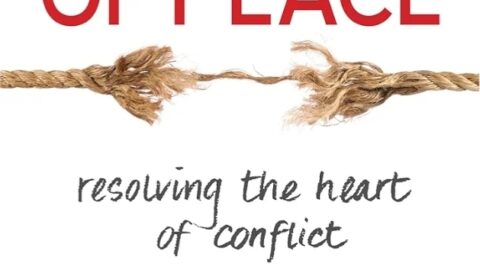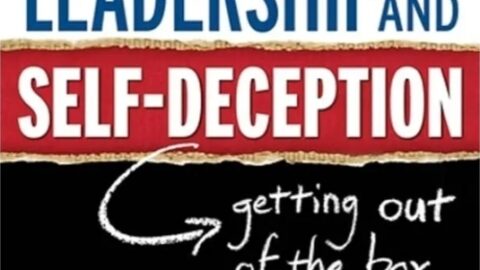The Marketplace of Noise
Imagine walking into a crowded marketplace. It is not filled with laughter, haggling, or music, but with something stranger: the hum of unthinking agreement. Words are repeated without origin, heads nod in unison, faces move to an invisible rhythm. The crowd is alive not with individuality, but with the choreography of conformity.
In such a place, to think aloud is dangerous. The moment you question the script, silence falls—not the silence of peace, but the silence of judgment. The crowd, which once ignored you, now measures you, and condemns you for daring to move against the tide.
The Age of Individuality and Its Paradox
We are told to “be ourselves,” yet individuality today is permitted only within socially palatable boundaries. Speak your truth—yes, but only if it aligns with the collective truth. Freedom is offered, yet most surrender it willingly to avoid the loneliness of exile. The paradox of our era is stark: the louder the praise of uniqueness, the harsher the punishment for actual independence.
The Epidemic of Obedience
The real disease is not ignorance, but obedience. Surrounded by noise—social, political, cultural—thinking is exhausting, so many outsource it to the loudest voices. Mimicry feels safer than scrutiny. But if the crowd itself is no longer thinking, then who exactly are you following?
The deeper paradox emerges: perhaps the true madness is not resisting the collective trance, but remaining inside it.
The Invisible Prison of Thought
The most dangerous prison is not built of steel but of ideas. People defend their captivity because it feels familiar. Jung’s idea of the collective unconscious and Nietzsche’s herd instinct reveal why belonging feels like survival and deviation feels like death. What once protected us from exile in ancient times is now weaponized through ridicule, cancellation, and algorithmic conditioning.
When Truth is Ridiculed into Silence
Arthur Schopenhauer warned that truth passes through ridicule, opposition, and eventual acceptance. Yet in mass psychosis, many truths die in the first stage—mocked into silence before they are examined. Instead of debating ideas, the crowd attacks the person who voices them. And so, an unspoken law takes hold: do not think what you cannot say.
Bad Faith on a Civilizational Scale
Sartre called it bad faith: deceiving oneself to escape the weight of freedom. Mass psychosis is society’s collective bad faith. People prefer illusions over the responsibility of truth. As Aldous Huxley foresaw, we are not crushed by tyranny but lulled into sedation by comfort, entertainment, and distraction.
The Machinery of Groupthink
Psychology confirms what history demonstrates. Asch’s conformity experiments proved that even when truth is obvious, dissent collapses under majority pressure. Survival once depended on blending in—but in the age of global communication, the “tribe” is millions strong. Conformity is no longer local, it is planetary.
The Consequences: Shallowness, Outrage, and Collapse
The decline begins subtly. Conversations lose weight. News devolves into outrage theater. Relationships fracture as independent thought becomes risky. On a larger scale, entire societies drift into madness: witch hunts, fascism, financial bubbles—all examples of collective delusion.
Cognitive biases tighten the trap. Confirmation bias, authority bias, and the bandwagon effect once ensured survival but now drive civilization toward ruin. And when thinking is suppressed too long, the muscle of skepticism atrophies. People no longer can dissent—not because they are forbidden, but because they have forgotten how.
The Spark of Rebellion
True rebellion does not begin with banners in the streets, but with a single dangerous thought: What if they are all wrong?
This is the spark that threatens mass psychosis. Rebellion is not shouting louder—it is withdrawing attention from the noise altogether. It is reclaiming the sovereignty of the mind.
Breaking Free from Mass Psychosis: A Short Overview
We live in an era that preaches individuality yet demands conformity more than any other. The transcript highlights how mass psychosis forms — not through ignorance but through unexamined obedience, the herd instinct, and our ancient fear of exile. Jung, Nietzsche, Huxley, and others warned that the collective mind, once surrendered to comfort and noise, becomes hostile to truth itself.
Escaping this trap is not about shouting louder than the crowd but reclaiming sovereignty:
- Reclaim attention — Starve the machine of your focus. Starve the algorithms by refusing constant outrage.
- Reclaim language — Refuse slogans; speak deliberately. Resist slogans; speak slowly and precisely.
- Reclaim silence — Cultivate stillness, the forge of clarity. Seek people who value truth over comfort, even if this means first walking alone.
- Reclaim community — Find those who prize truth over comfort. Learn to endure stillness, where real thought begins.
- Reclaim courage — Accept exile as the cost of freedom. Accept the cost of being disliked, exiled, or ridiculed.
The real liberation, as the piece reminds us, comes not in defeating the crowd but in transforming ourselves — reclaiming the inner voice that whispers truths untouched by consensus. Freedom is not absence of influence, but mastery of it. Each step is an act of sovereignty, a refusal to kneel before the marketplace of noise.
Sovereignty and the Danger of Bitterness
Exile for the sake of truth is painful. The awakened risk bitterness against the crowd. Yet true liberation comes not from running further from the herd, but from weakening its hold over your mind.
The crowd is not composed of fools, but of mirrors—reflections of the fear and longing you once carried yourself. Compassion tempers awakening: recognizing that those still asleep are simply inhabiting the same illusions you once clung to.
The Final Realization: Freedom as Inner Sovereignty
The final liberation is personal, not collective. You cannot save the crowd, but you can uproot the chains within yourself. Freedom is not the absence of influence but the mastery of it.
When you no longer need the crowd’s approval, its spell dissolves. You hear your own voice again—the one that existed before the noise, before the slogans, before the herd. That voice does not seek consensus. It does not trend. It simply speaks the truth of your own soul.
Conclusion: Walking Away from the Marketplace
And so you leave the crowded marketplace. The hum of unthinking agreement fades. The road ahead is quieter, lonelier, uncertain—but it is truly yours.
You were never meant to belong to the herd.
You were meant to be free.
Point-by-Point Breakdown: Mass Psychosis and the Prison of the Crowd
1. The Marketplace of Unthinking Agreement
- The setting is a marketplace filled not with ordinary sound, but with the “noise” of conformity.
- People speak in repetition, voices echoing ideas not their own.
- Movements and gestures align as if choreographed, revealing a collective trance.
- The moment someone questions the pattern, judgment falls on them — the crowd labels them an outsider.
2. The Paradox of Individuality vs. Conformity
- Society praises individuality but demands conformity more than ever.
- “Be yourself” is permitted only within socially acceptable boundaries.
- Freedom is promised, but many surrender it to avoid loneliness.
- The paradox: the age that glorifies uniqueness punishes genuine independence.
3. Obedience as the Real Epidemic
- The problem is not ignorance, but obedience.
- People outsource thinking to the loudest voices.
- Safety is found in mimicry, not truth.
- The critical question: If the crowd is no longer thinking for itself, who are you trusting when you follow it?
4. The Path of Exile vs. Madness of the Crowd
- Resisting conformity leads to exile.
- The crowd says dissent is madness — but perhaps staying in the trance is the true insanity.
- The tension: belonging vs. freedom. Choosing one often means losing the other.
5. The Invisible Prison of the Mind
- The prison is not made of steel, but of thoughts and illusions.
- People defend their own captivity because it feels safe and familiar.
- Jung’s “collective unconscious” and Nietzsche’s “herd instinct” explain why belonging is instinctive and deviation feels dangerous.
- Modern society weaponizes this instinct through ridicule, cancellation, and algorithmic conditioning.
6. The Stages of Truth & Suppression
- Schopenhauer: truth is ridiculed, opposed, then accepted.
- In mass psychosis, many truths never survive ridicule.
- Dissenters are silenced by personal attacks rather than logical debate.
- The unspoken rule emerges: Don’t think what you can’t say.
7. Mass Psychosis as Collective Bad Faith
- Sartre’s “bad faith”: pretending you lack freedom to avoid responsibility.
- Mass psychosis = society’s bad faith — choosing illusions over the complexity of truth.
- Huxley’s warning: people sedated by entertainment willingly surrender truth.
8. Psychology of Conformity & Groupthink
- Solomon Asch’s experiments prove people conform even when the truth is obvious.
- Survival wiring favors blending in, not truth-seeking.
- Today, global communication multiplies conformity pressure — millions form the “tribe.”
9. Consequences: From Shallowness to Collapse
- Conversations lose depth, reduced to slogans.
- News becomes outrage theater.
- Relationships fracture under fear of saying the “wrong” thing.
- On a societal scale: witch hunts, fascism, financial bubbles — all examples of collective madness.
10. Cognitive Biases as Chains
- Confirmation bias, authority bias, and the bandwagon effect reinforce mass delusion.
- These instincts once ensured survival but now create vulnerabilities.
- Suppressing critical thinking atrophies the ability to dissent.
11. Civilization’s Corrosion
- The real rot comes not from ignorance but from comfort.
- Cultures collapse when people care more about safety than truth.
- Attempts to awaken the crowd are resisted; truth-tellers are attacked as threats.
12. Rebellion Begins in the Mind
- The spark: the question “What if they’re all wrong?”
- True rebellion isn’t shouting louder but withdrawing attention and energy from the crowd.
13. Steps to Break Free
- Reclaim attention – starve algorithms and noise of your energy.
- Reclaim language – resist slogans, speak with precision.
- Find the others – seek truth-seekers, but first stand alone.
- Reclaim silence – cultivate stillness, where thinking begins.
- Reclaim courage – endure exile and ridicule for the sake of clarity.
14. The Wilderness and Sovereignty
- Exile is painful but necessary for individuation.
- Nietzsche’s Übermensch: forged in solitude.
- Awakening brings complexity, uncertainty, and self-reliance.
- True sovereignty is freedom of mind, untouched by manipulation.
15. Compassion After Awakening
- The danger of awakening is bitterness toward the crowd.
- True liberation = indifference to the crowd’s power over you.
- The crowd are not fools but mirrors of your former self.
16. The Final Realization
- The greatest chains are self-forged, chosen for comfort.
- Awakening is not defeating the crowd but transforming oneself.
- Sovereignty means thinking, feeling, and acting without needing approval.
- The crowd dissolves once you no longer believe you need it.
17. The Closing Image
- You leave the marketplace.
- The noise fades behind you.
- The road ahead is uncertain but truly yours.
- At last, you understand: You were never meant to belong. You were meant to be free.







